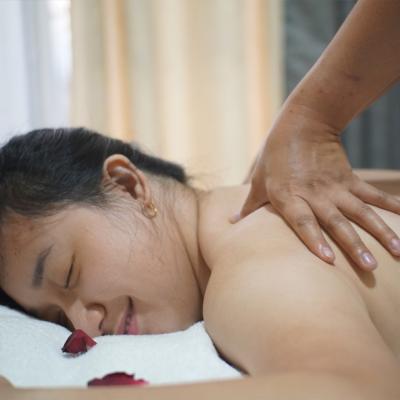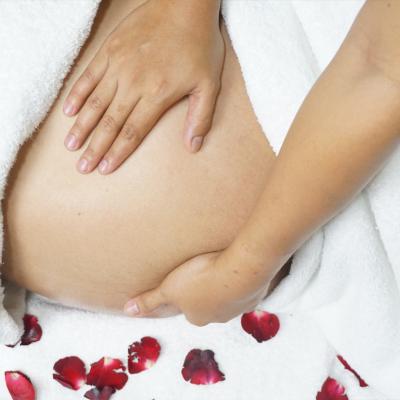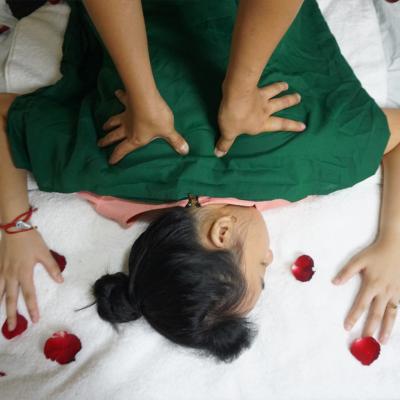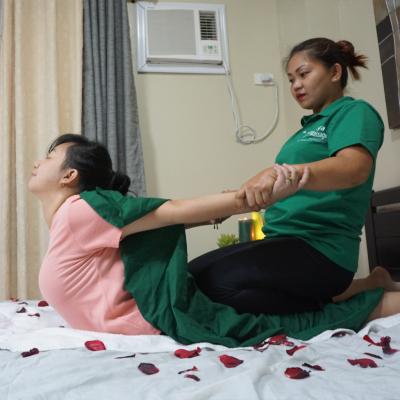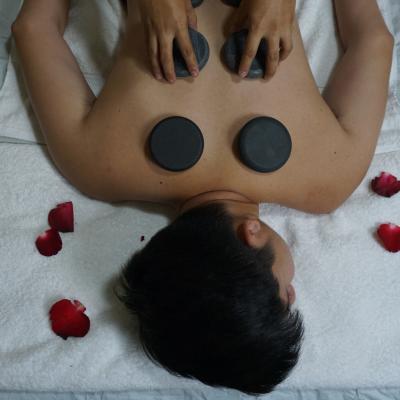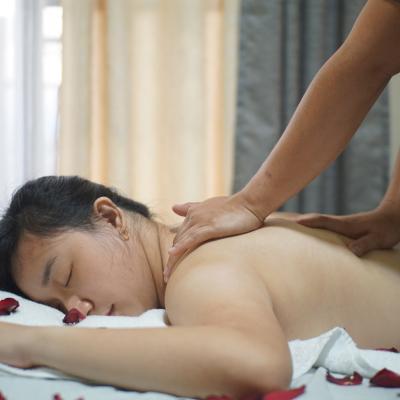There are a few things that we all connect with relaxation: spa days, lazing in bed until two o'clock in the afternoon, or going to your favorite nature spot. naturally, having a massage. Additionally, while massage is a fantastic way to unwind, it also offers additional therapeutic advantages.
The word "massage" itself really refers to a variety of distinct massage techniques, from Swedish massage (the most popular form) to treatments with more specialized goals, such as a combination massage intended for massage enthusiasts to experience all types of massages.
Regardless of the type of massage you get, the benefits of massage really come down to one thing: pressure. “The skin is moved during a moderate pressure massage, which results in a calming and slowing of the nervous system,” says Tiffany Field, Ph.D., director of the Touch Research Institute at the University of Miami School of Medicine. According to Field, this slowdown of the nervous system also has other physiological impacts, such as changes in blood pressure, heart rate, and EEG patterns (the electrical activity in the brain).
Furthermore, it takes less time than you might anticipate to get such results. Mark Hyman Rapaport, MD, chief of psychiatric services at Emory Healthcare, who has directed numerous studies examining the effects of massage, says "For the study, we're able to establish favorable results for massages that are only 20 minutes long." The majority of massages, according to Dr. Rapaport, are typically promoted to last approximately 50 minutes, so when you receive one, you'll be under pressure for longer than is necessary to get their full advantages.
And what happens if you can't afford to visit the nearby spa? You don't always need to visit a massage therapist, adds Field. Since we can reach most of our body parts, she says, "You can give yourself a massage." You can use a massage brush in the shower or even rub a tennis ball against your limbs to perform a 20-minute self-massage.
So, if you're considering scheduling a session or buying a self-massage device, here are six of the therapy's most important advantages.
Sleep more soundly
Have a hard time falling asleep or have insomnia? You can actually fall asleep deeper if you get a massage. According to Field, the amount of nervous system activity has a direct correlation to how well one sleeps. Additionally, the pressure of a massage actually causes your nervous system to calm down.
Additionally, she claims that obtaining deeper, more restorative sleep lowers your levels of substance P, a pain neurotransmitter, which in turn lessens general pain. Therefore, massage will serve two purposes if you have any aches.
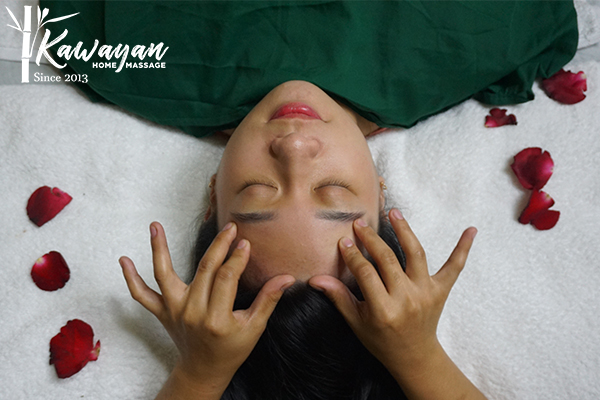
Relieve Anxiety
According to one study, getting a massage can actually dramatically lessen your symptoms if you suffer from anxiety. According to Dr. Rapaport, the study's principal investigator, "What we think is going on is it's decreasing the sympathetic tone that we find with people with generalized anxiety disorder and enhancing this sort of parasympathetic response."
The sympathetic nervous system and the parasympathetic nervous system are the two distinct nervous systems in your body. According to Rudy Gehrman, DC, a sports medical chiropractor and the owner of Physio Logic in New York, "your sympathetic is fight or flight." "If a lion is chasing you, your sympathetic nervous system is engaged."
However, a massage increases your parasympathetic (or relaxing) response, which reduces anxiety, according to Dr. Rapaport.
And the even better news? It's possible for massage to have long-lasting impacts on anxiety reduction. According to Dr. Rapaport's informal follow-up, a sizable portion of these patients were still anxiety-free somewhere between six and 18 months later.
Heal injuries
According to Gehrman, if you have joint pain or an injury, you'll also have "soft-tissue constraints," which result in pain knots or trigger points, especially if the condition is long-lasting or persistent. According to him, "massage therapists are removing soft-tissue limitations and boosting circulation."
By regularly massaging out those soft-tissue constraints, you're not only addressing your current ailment but also preventing future problems down the road. These limits can, over time, lead to issues like joint degradation or other ligament difficulties. But choosing a qualified massage therapist with considerable expertise working with wounded people is crucial when obtaining a massage for your ailment.
According to Gehrman, while working with soft tissues of any kind, you are essentially doing scientific harm. If you go too far, the patient won't be able to recover from the treatment. A competent, qualified massage therapist will be able to determine which regions should be avoided while massaging an injury and which places should be massaged.
Fight fatigue
We've all been there: You've spent the entire night tossing and turning, your workday has been exhausting, and you feel as if you don't even have five minutes to take a deep breath. According to Dr. Rapaport, some people become tired because they don't get enough sleep. Because of a few biological reasons, other folks are becoming weary.
But whatever the reason behind your exhaustion, getting a massage is a simple fix. In fact, a Dr. Rapaport-led study from 2018 discovered that breast cancer survivors who received weekly Swedish massages reported less fatigue, a particularly crippling side effect of the illness. Try getting a massage once a week to experience the optimum results, according to Dr. Rapaport's research.
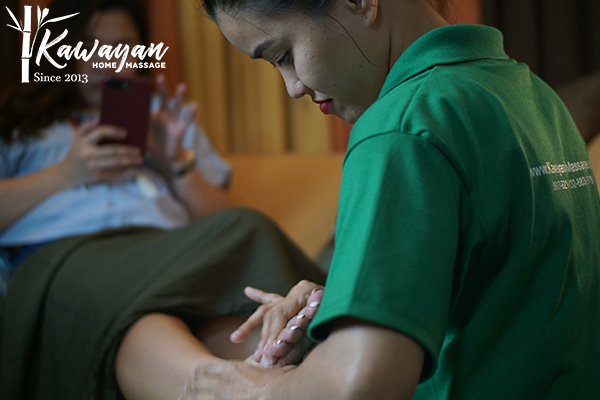
Aid certain health conditions
According to Field, for your immune system to function at its best, there must be a balance between the two immunological responses that your body produces—Th1 and Th2. You develop autoimmune issues, she explains, if the Th2 system overpowers the Th1 system.
To assist preserve this balance, she claims, stress hormones are slowed down during massage. As a result, things like lessened discomfort or weariness may make autoimmune disorders like asthma, type 1 diabetes, or dermatitis easier to manage.
Boost focus
Have difficulties staying focused for more than ten minutes in a meeting or finishing a book before bed? Your focus and attentiveness will actually improve as a result of a massage.
That's because your heart rate needs to be decreased in order for you to concentrate the best. "My heart rate is always increased when I'm not paying attention," adds Field. And I'll be more focused once my heart rate is lower.
Your heart rate is successfully slowed down during a massage because it causes your nervous system to calm down. According to Field, when you receive a massage, your pressure receptors activate vagal activity, which comes from a brain nerve that travels to various different parts of the body, including the heart.
Therefore, when you receive a massage, the pressure may also cause your pulse rate to drop, which may ultimately help you focus better.

